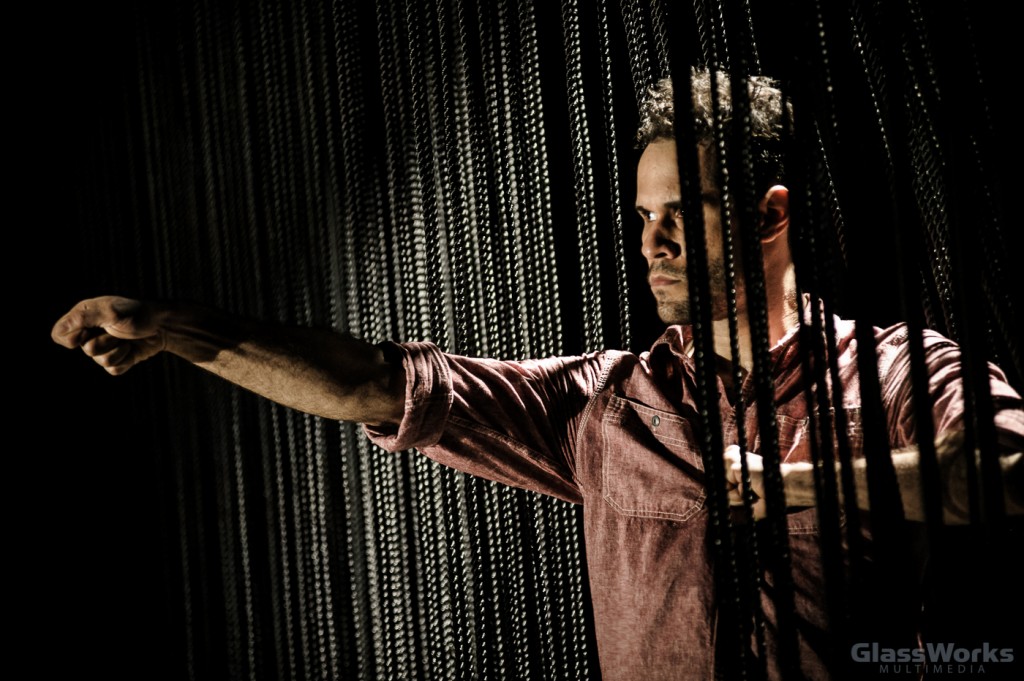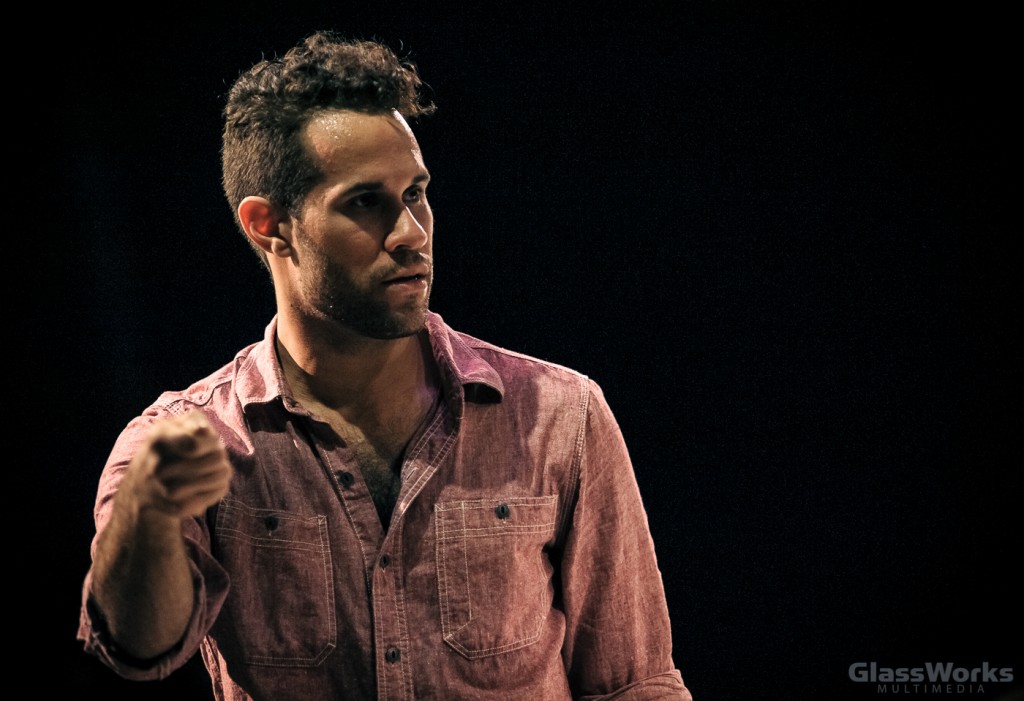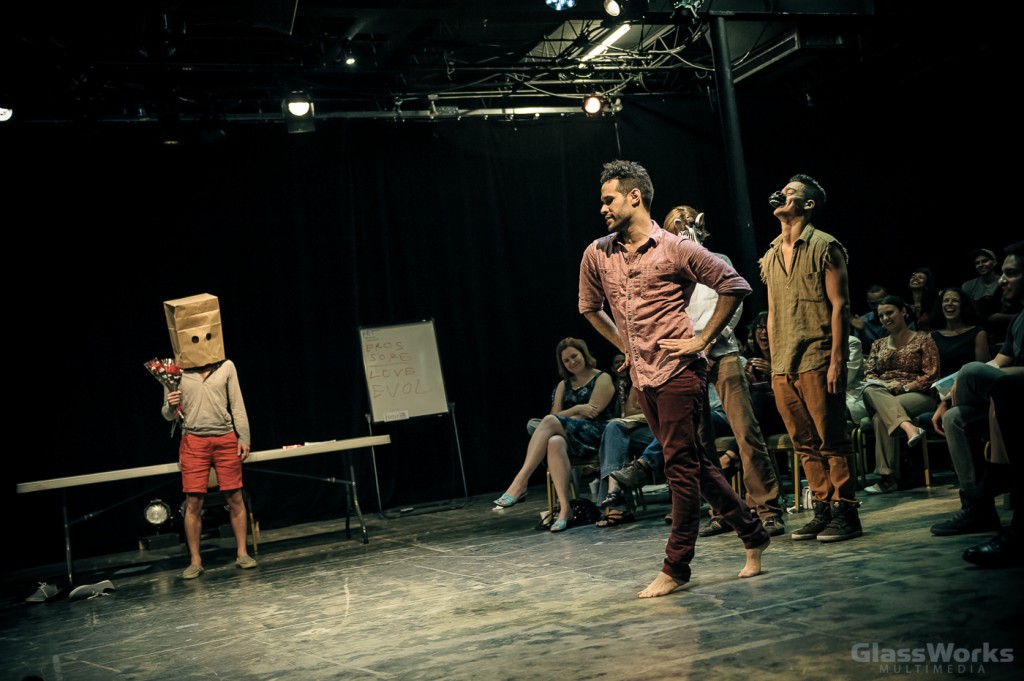
The evolution of Rudi Goblen
Rudi Goblen’s engaging one-man show, PET, examined the costs and consequences of that four-letter word we call love. Staged in a support-group-like setting, PET’s mission statement was conceived “with the purpose of sharing, listening, learning from and being supportive of each other—while teaching preventetive tactics to protect your heart, love yourself, love again and free yourself from co-dependency.” As it turned out, yes, this is malarkey. There’s no prescription and/or bulletproof prevention method for protecting one’s heart.
The performance was divided into three sections. The first section, or pre-performance, began with Goblen behind the black braided curtain that divides the Light Box space from the corridor that melts into the performance arena. As the audience awkwardly stood peering through the curtains, we watched Goblen perform three almost lyric-less “songs” or odes to love that sounded like caterwauls accompanied by Goblen’s tightly contorted body movements. Then Goblen, with his gigantic radiating smile, welcomed us inside the “support” center, where we sat in chairs arranged in a semi-circle.
Once inside, Goblen engaged the audience with hilarious banter while he detailed his four major experiences with love from childhood to adulthood—all of which ended badly, which is why he ended up in a support group. Goblen’s courageous performance, vulnerable and powerful, especially the first half, reminded me of Goblen’s herculean ability to engage and connect with audiences. He made us laugh, and his humor was dead on.
Rudi Goblen. Photo by GlassWorks
However, between the jokes, cracks began to emerge where an understandably bitter, angry and lovelorn character popped its head out and spoke to us about pain and anger, betrayal and loss, love and hate. At this point, I felt like I was really in a support group, one that eerily blurred the line between life and art. This is where a new Goblen emerged and staked his claim as one of the most dynamic performers on the Miami scene.
After a short interlude (iced tea and snacks were provided for the audience), the performance moved into murkier territory where the narrative began to break down and what was promised in the PET manifesto was abandoned. Torn apart at the psychological seams, Goblen’s character struggled to come to terms with his cheating ex, and his language and movements (understandably) devolved into anger. She was a “whore” he shouted at several points toward the end of the performance. The notion of loving oneself (again) and freeing oneself from heartbreak faded into the darkness as intense anger filled the PET healing space.
Rudi Goblen. Photo by GlassWorks
And I think that was the point. No support group, no matter how well-intended or organized, can magically heal the visible and invisible wounds. These wounds must heal on their own if ever. What we learned during the course of Goblen’s performance is that (the end of) love destabilizes us. Therapy may not work. Heartbreak endures though a lifetime. Anger ameliorates at its now pace. And although we dive into love with the notion that love can never tear us apart, it does. Love defies our notion of love because its intoxicating allure blinds us. Like Goblen, we have to open our eyes and find our way out of this mess on our own.
Recent Content
-
Artsarticle ·
-
Artsarticle ·
-
Artsarticle ·


